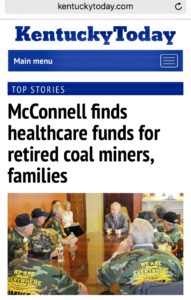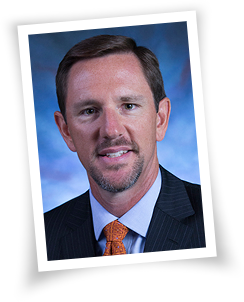 The changing landscape of journalism in the United States and, more specifically, Kentucky has created a great need for new ways to disseminate news. With traditional newspapers shrinking in both size and circulation and television news growing more sensational by the day, Kentuckians have had to navigate a maze of often biased, lopsided, and decidedly liberal coverage to stay informed about all the goings-on in the world around them. To provide balance and a source of real news, Kentucky Today was launched in November 2015 by the Kentucky Baptist Convention communications department under the leadership of Roger Alford.
The changing landscape of journalism in the United States and, more specifically, Kentucky has created a great need for new ways to disseminate news. With traditional newspapers shrinking in both size and circulation and television news growing more sensational by the day, Kentuckians have had to navigate a maze of often biased, lopsided, and decidedly liberal coverage to stay informed about all the goings-on in the world around them. To provide balance and a source of real news, Kentucky Today was launched in November 2015 by the Kentucky Baptist Convention communications department under the leadership of Roger Alford.
Kentucky Today has one goal in mind, to be a world-class online publication that operates on a rather unique, non-traditional model in that all the news is made available at no charge to readers simply by visiting the website www.KentuckyToday.com. No paid subscriptions necessary. The cost is covered by donors who value unbiased news coverage and conservative commentary.
As a complement to the Baptist news we depend on from the Western Recorder, Kentucky Today focuses on coverage of government and politics, because those are areas where fair coverage has been in short supply. It is a credible news source that provides readers with up-to-the-minute coverage of our state, nation, and world, while at the same time providing the strong, statewide conservative editorial voice that has been sorely missing in our state. Kentucky Today also provides articles to newspapers around the state. Essentially, Kentucky Today has taken on the additional role of operating as a news service.
Kentucky Today possesses close to a century of journalism experience when adding together the years of service of its staffers. Kentucky Today’s base is the 1 million Kentuckians who identify themselves as Southern Baptists. By sheer numbers, Kentucky Baptists make up one of the largest communities in our state. This community is not defined by geographical boundaries, but it is a community nonetheless. Kentucky Today was established to serve that community by providing the latest and most significant news of the day.
We have found, however, that interest in Kentucky Today goes far beyond Southern Baptists. In fact, nearly every elected official in Frankfort receives Kentucky Today’s Morning Briefing, which contains the big news stories of the day. Within its pages, readers find a full slate of world, national, and state news courtesy of an affiliation with The Associated Press, the world’s largest newsgathering operation and the gold standard in journalism. Readers also find the latest business, sports, and even entertainment news, because, to engage the world, our readers need to know what’s going on in the world.
Make no mistake, Kentucky Baptists have a keen interest in what happens in Frankfort. They’re a huge voting bloc with the power to sway elections. They demand and deserve world-class news coverage. They want to know the whys and hows of politics. They want to see their views represented on op-ed pages. They want political leaders to know what they think about the issues of the day. They want to be heard. Kentucky Today gives them a voice in Frankfort and beyond.
If you haven’t signed up for the daily briefing email news update from Kentucky Today, go to the KentuckyToday.com home page and sign up today.

 On March 10, 2017, Governor Bevin and the Cabinet for Health and Family Services held “A Summit to Save Our Children” in Frankfort. The summit was Governor’s official expression of his ongoing commitment to streamline the Foster Care/Adoption process in the Commonwealth. This initiative should be particularly exciting for Kentucky Baptists. At that summit Governor Bevin issued a call to mobilize a network of non-profits, faith-based organizations, and loving families to “take a stand to ensure all children in the Commonwealth are safe, cared for and loved.”
On March 10, 2017, Governor Bevin and the Cabinet for Health and Family Services held “A Summit to Save Our Children” in Frankfort. The summit was Governor’s official expression of his ongoing commitment to streamline the Foster Care/Adoption process in the Commonwealth. This initiative should be particularly exciting for Kentucky Baptists. At that summit Governor Bevin issued a call to mobilize a network of non-profits, faith-based organizations, and loving families to “take a stand to ensure all children in the Commonwealth are safe, cared for and loved.”
